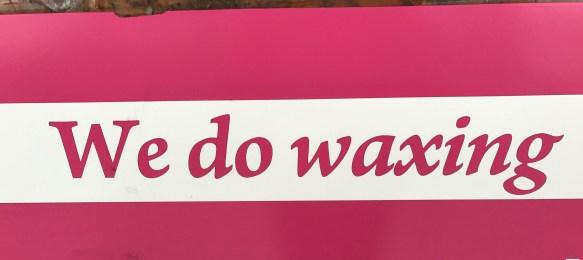Common wisdom says that we’re living in an “anything goes” era, when the norms of society have been run through a wood-chipper. This may be true, but it hasn’t stopped people from attempting to regulate — and especially to prohibit — various forms of behavior. Witness this sign:

Okay, I understand the passion that prompted this sign. Who wants to dig into plumbing and remove food, not to mention cat litter? What intrigues me is the capitalization. Why throw a capital letter at a “Q-Tip” and withhold one from “baby wipes”? Maybe it’s a brand-name issue, but I doubt there’s a copyrighted product called “Food” or “Sanitary Towels.” Before I move on to the next sign, I should mention that I’m not completely sure what “baby wipes even they are flushable (they really are not)” means. I’m leaning toward “don’t believe the blurb on the package,” a statement that I apply to everything I buy.
And then there’s this sign in a public plaza:

I understand most of these prohibitions, even though I don’t necessarily agree with the choices. “Bike crossing” makes me imagine a Schwinn spending some private time with a Citibike, and before you know it, a bike crossing occurs. Just kidding. In real life, my best guess is that “crossing” refers to cutting diagonally from one street to another that’s perpendicular. But is it really necessary to state that a bike shouldn’t be ridden through a twisted, narrow path in a plaza full of people, many of whom are little kids? This is New York, so the answer is probably yes, but because this is New York, the sign won’t make one bit of difference. While reading and puzzling over the sign, the cyclist will probably run into someone anyway.
Moving (but not cycling) on:

How did “music” arrive on this list? And is “site safety prohibited”? And is music that dangerous? Having lived through the Sixties, I agree that revolutions have soundtracks. Still, it’s disturbing to see music listed with smoking, drugs, and weapons. I do love the last line, especially “shall be strictly enforced.” “Shall,” which once upon a time was the emphatic form in the third person (as you see it here), has largely given way to “will” in American English. Adhering to this venerable usage makes me want to observe every rule this site-manager insists on. I just have to say yes, yes, a thousand times yes, to anyone who writes “shall be.”




























